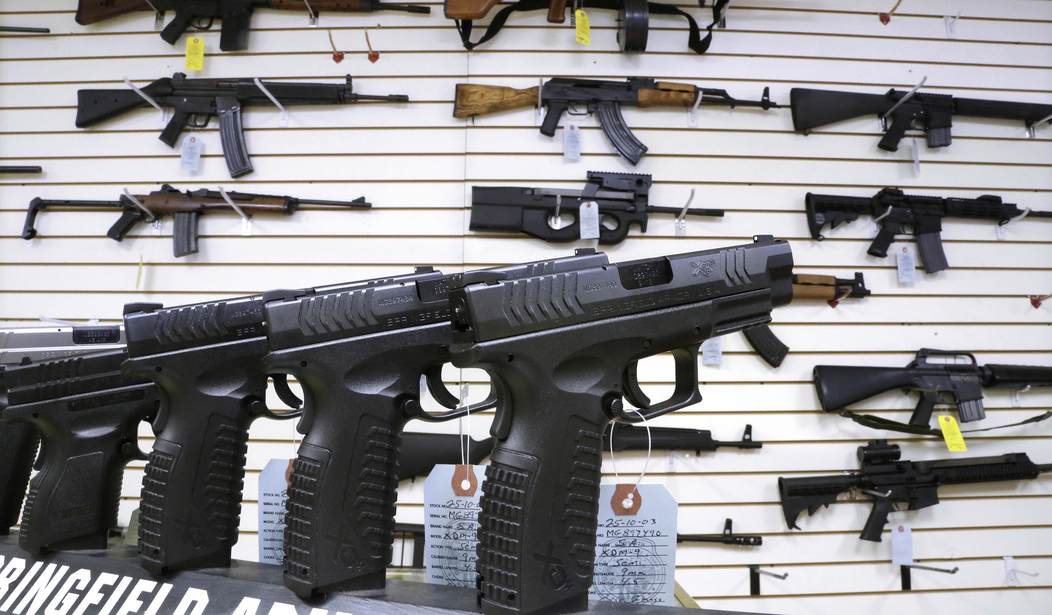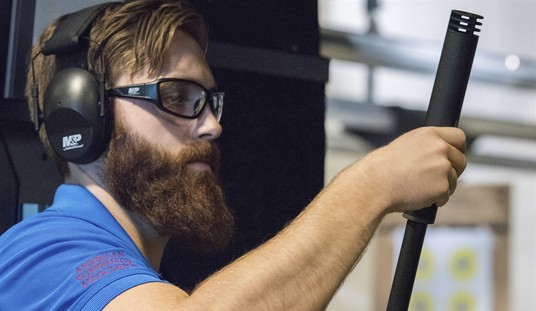Machine guns are an integral part of the United States military, and we know that our Founding Fathers wanted private citizens to have the means to fight any military power with their own weapons. That should suggest we should have full-auto firearms.
Yet in a recent court filing, the federal government said that they're not protected by the Second Amendment.
Obviously, I disagree. I'm always going to disagree, in part because I'm the guy who thinks I should be able to own an F-22 Raptor and an M1 Abrams so long as I've got a way to pay for them.
But over at our sister site, Townhall, my friend Jeff Charles covered this, and there was a part of his reporting that kind of struck me.
Assistant US Attorney Eileen Kuo brought up a court’s ruling in the 2009 Hamblen v. United States, where the court used the Heller decision to determine that the Second Amendment did not protect a Tennessee State Guard member who owned several machine guns.
However, Judge John Nalbandian noted that “Hamblen doesn’t apply after Bruen.”
When asked for a historical example supporting her contention that the Second Amendment does not cover machine guns, she responded, “The regulation on gunpowder in the 1800s regulated the amount of gunpowder an individual could own.”
The judge didn’t seem to buy this. He noted that regulation “was a fire code issue so they wouldn’t blow up the town.”
He asked, "Isn't the 1986 machine gun ban the first? That's fairly powerful evidence of no historical evidence of the federal government banning any category of weapons."
Kuo replied, insisting that current firearms, unlike those manufactured in the 19th century, are “highly destructive and specialized weapons” and claimed the Second Amendment “does not include the right to go on the offensive and to wage war with military weapons.”
Now, Kuo is technically correct. There's nothing in the Second Amendment specifically including the right to go on the offensive. However, there's nothing in there that specifically prohibits the ability to do so, either. It does say "the right of the people to keep and bear arms shall not be infringed," though, which means that it doesn't matter if a weapon would empower someone to engage in offensive warfare or not. It's not the government's place to restrict jack.
And by the judge's responses, I think he's inclined to agree.
Hamblen no longer applies after Bruen--and it was wrong from the jump, in my opinion--and there isn't a historic analog for restricting such weapons. The gunpowder regulations were, in fact, fire codes and had nothing to do with public safety beyond that. Further, that's more akin to, say, regulation of explosives or even ammunition, if one were so inclined to make that argument, versus the weapons themselves.
In fact, at the time of the nation's founding, the most destructive weapons known to man were artillery. These were "highly destructive and specialized weapons," to use Kuo's phrasing.
They were also in private hands.
In fact, you can still own those exact same artillery pieces without any licensing at all. I can order such a cannon online, have it shipped directly to my home, and enjoy it for the rest of my life without ever having to ask the feds for permission. No background checks are required or anything.
And I'll clue you in on a little something as someone who spent a lot of weekends during middle school and high school shooting replica Civil War artillery as a reenactor: They're still highly destructive.
In fact, I can't help but look at the government's arguments here and wonder how anyone could think that these are valid, especially in a post-Bruen world.
Then again, I'm left wondering if they're actually trying to defend the law at all. Sure, they're making motions like they are, but while I can't say they're trying to throw the case, I can't think of anything I'd do differently if I were in their shoes and trying to throw the case.








